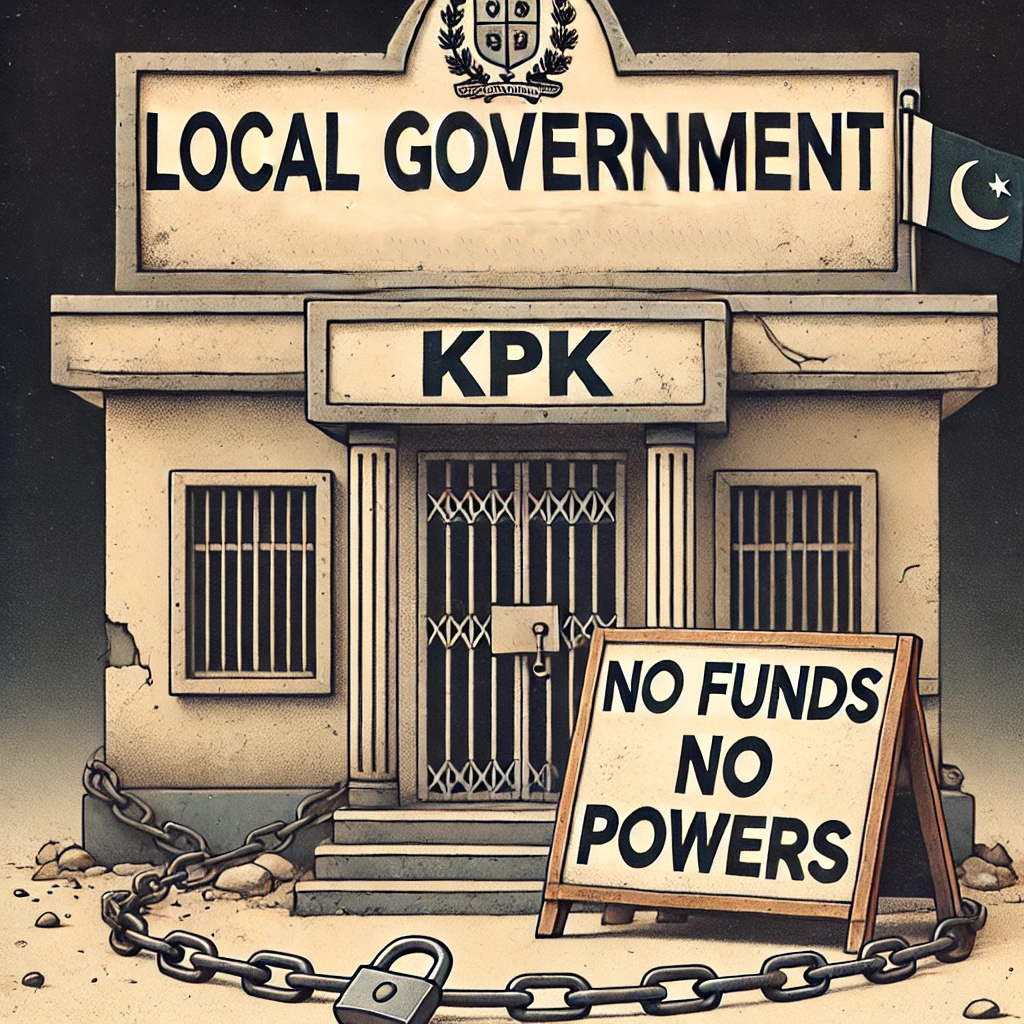Zaryab Khan is a resident of the central town of Dir in the district Upper Dir, known for its natural beauty. He is riled by the piles of garbage that he sees scattered everywhere in the city.
“When we approach municipal officials with complaints, they say they have no fuel for the vehicles and they are not getting their salaries and they are not cleaning the city in protest.”
“When we approach the tehsil municipal administration (TMA) to register our complaint with the tehsil chairman about our problems, he starts complaining about the lack of funds. He says when the TMA doesn’t have funds to pay salaries to its employees, how can it spend money on cleaning the streets and neighborhoods?”
Only when the TMA workers of the Upper Dir launched protests against being unpaid for six months, the provincial government paid them their salaries.
Zaryab Khan says that this is the first government he has seen in his life that claims it would transfer all powers and development funds to the grassroots, but now it is not even releasing the funds to undermine its opponents.
“Because of the stench all around, I don't even feel like going to the market.”
This issue is not limited to the city of Dir or the Upper Dir district but the same is the case with all districts of the province, particularly in the underdeveloped ones.
Disappointing election for PTI leads of changes to laws
The Pakistan Tehreek-e-Insaf (PTI) government in its last tenure had conducted local government elections in two phases in 2021-2022. In the first phase, in 17 districts, including Peshawar, the opposition-backed candidates won the election of mayors, tehsil chairmen, and village chairmen. In the second phase, the ruling party’s candidates won in most constituencies. Overall, out of 131 seats for tehsil chairmen and mayors in the province, 45 went to the PTI, while independent candidates and other political parties won 86 seats. These results were disappointing for the ruling party.
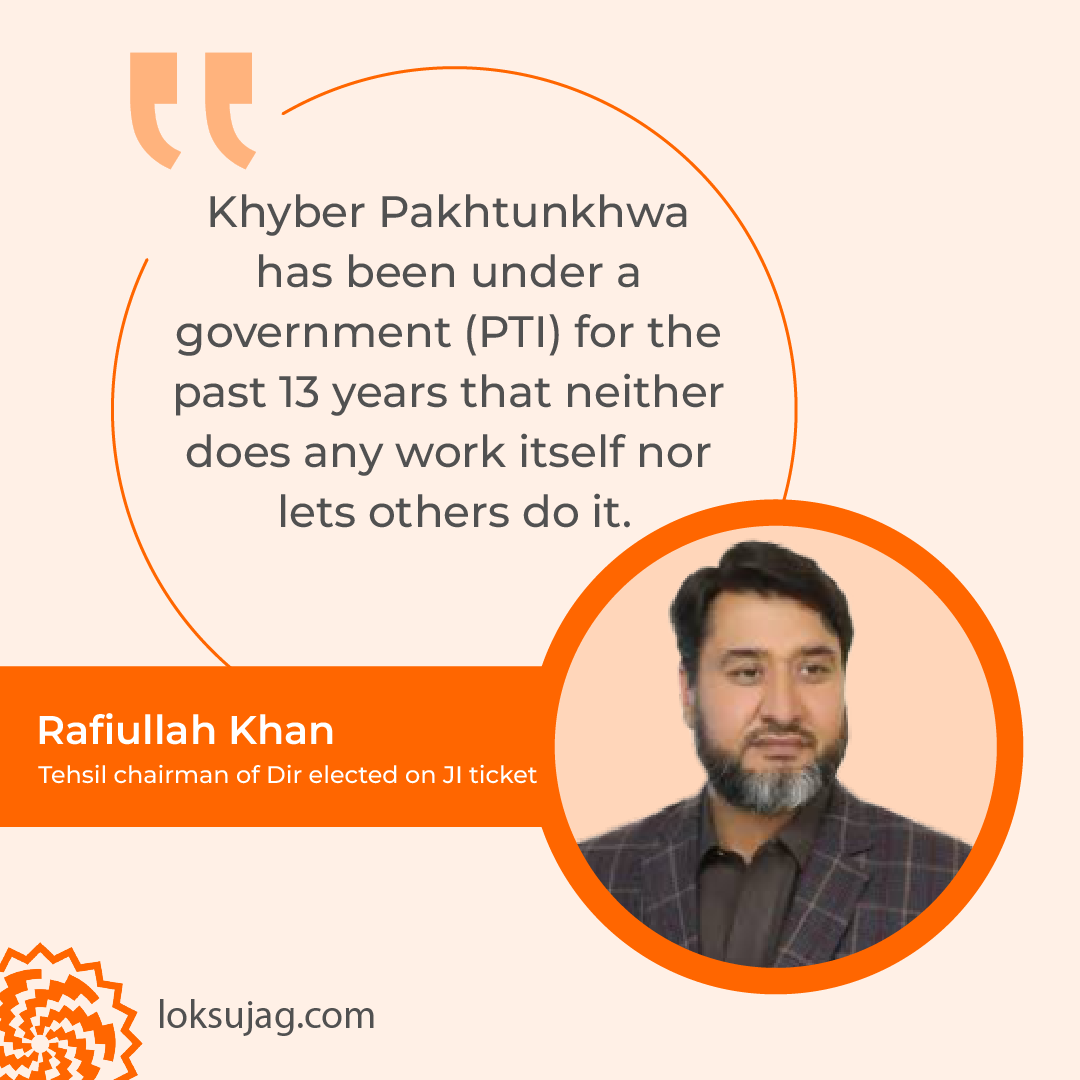
The elections, conducted under the Khyber Pakhtunkhwa Local Government (Amendment) Act 2019, were completed on March 31, 2022. However, even before the newly elected representatives could assume office, the provincial government made large-scale amendments to the LG law on June 3, 2022.
Under the 2019 law, municipal services and nine departments (also known as devolved departments) were transferred to local government institutions. The amended law of 2022 took back most of these departments.
Management of municipal assets and other powers were handed over to deputy commissioners, assistant commissioners and tehsil municipal officers (TMOs). Even the authority for joint signatures on the tehsil council’s account, previously held by the TMO and chairman, was removed.
Before this amendment, local government institutions used to receive funds or grants from the provincial government under Section 30(2)(b). However, the new amendment not only abolished this clause but also froze the funds for local government institutions, rendering them largely inactive. Later, in July 2024, administrative and financial powers for developmental projects were also transferred from local government institutions to the secretary of the Local Council Board.
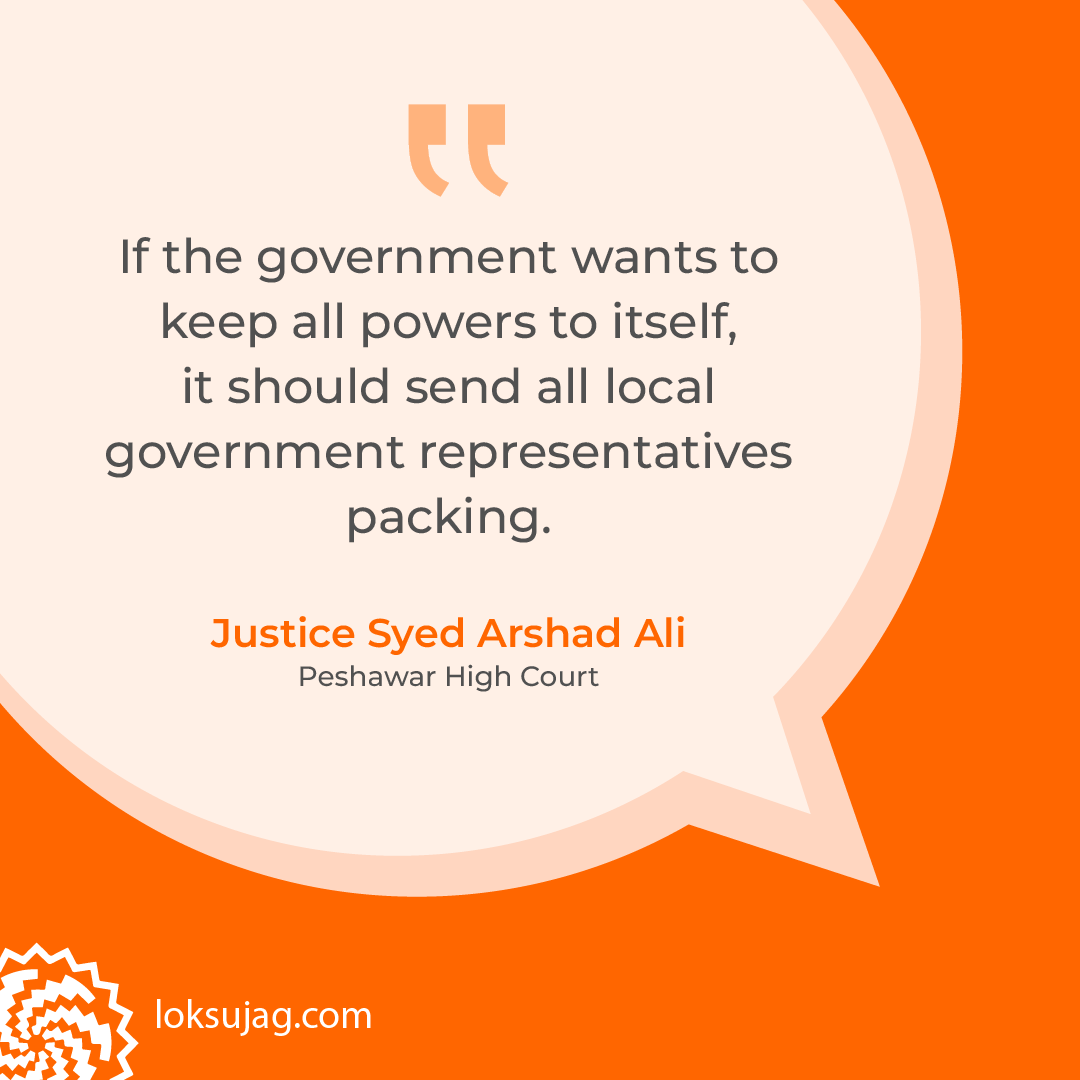
The PTI government plays spoiler
Rafiullah Khan, who was elected as tehsil chairman of Dir on a Jamaat-i-Islami ticket, says that KP has been under a government (PTI) for the past 13 years that neither does any work itself nor lets others do it. He explains that under the 2019 law, local government institutions had the right to 20pc of the funds from the National Finance Commission (NFC) and Provincial Finance Commission (PFC) awards. This right has now been taken away. He mentions that the monthly income of the TMA Dir is between Rs2m to Rs2.2m, which comes from bus stands, slaughterhouses, public toilets, water supply, taxes and furniture taxes. This amount is deposited into TMA’s general account.
“Even this authority was taken away from us but we managed to get it restored through a court order.”
According to Rafiullah, the provincial government has not provided any development funds since the elections, leaving elected mayors and chairmen completely powerless.
“People want clean streets, water supply, and a functional sewerage but due to a lack of resources, we are unable to work. Sometimes, we have to solve the serious issues of citizens from our own pockets, but how long can this continue?”
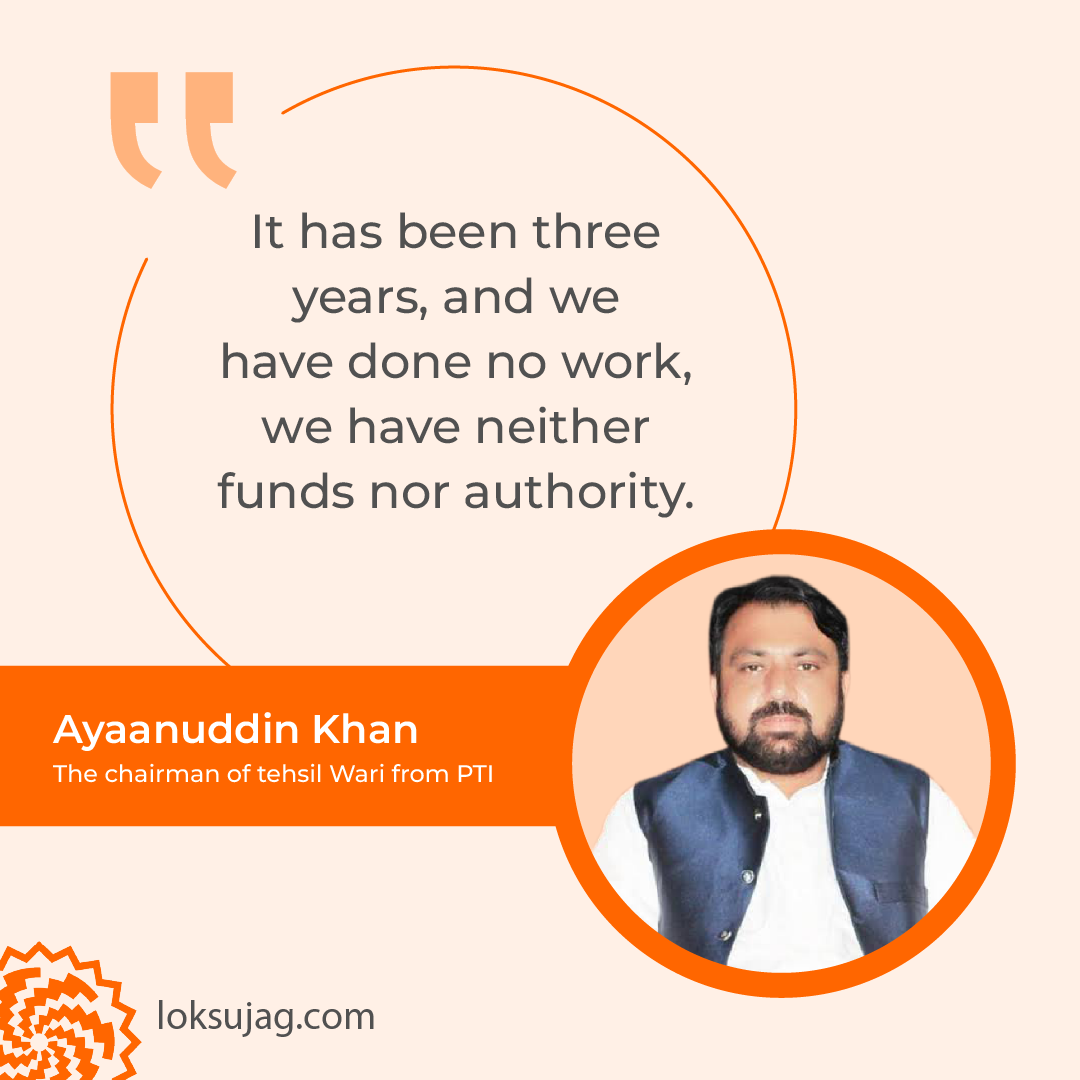
A toothless local government is of no use
The local government representatives had started protesting from the very first day after their powers were taken away, but two years ago, this protest took a more organised form. Under the leadership of Mardan Mayor Hamayatullah Mayar, all the chairmen and mayors from the province gathered and began a series of press conferences, protests, and sit-ins for their rights from the platform of the Local Councils Association.
Mayar says the government has repeatedly promised to restore funds and powers but has yet to fulfill them. Frustrated, some representatives, along with the Local Councils Association, have individually started approaching the courts.
Currently, at least five petitions by local government representatives are pending and under consideration in the Peshawar High Court, challenging amendments to local government rules, the return of devolved departments, cut in powers and suspension of funds.
In the meantime, the president of the Local Councils Association, Hamayatullah Mayar, also wrote a letter to the chief justice of the Peshawar High Court, requesting the resolution of the local government funds and powers issue.
The chairmen and mayors say that the PTI government in KP altered local government laws due to the success of opposition candidates in the local elections.
During the hearing of one such case in the Peshawar High Court, Justice Syed Arshad Ali remarked that if the government wants to keep all powers to itself, it should send all local government representatives packing.
The high court has sought responses from the government regarding the suspension of funds and centralization of powers but so far, there has been no progress.
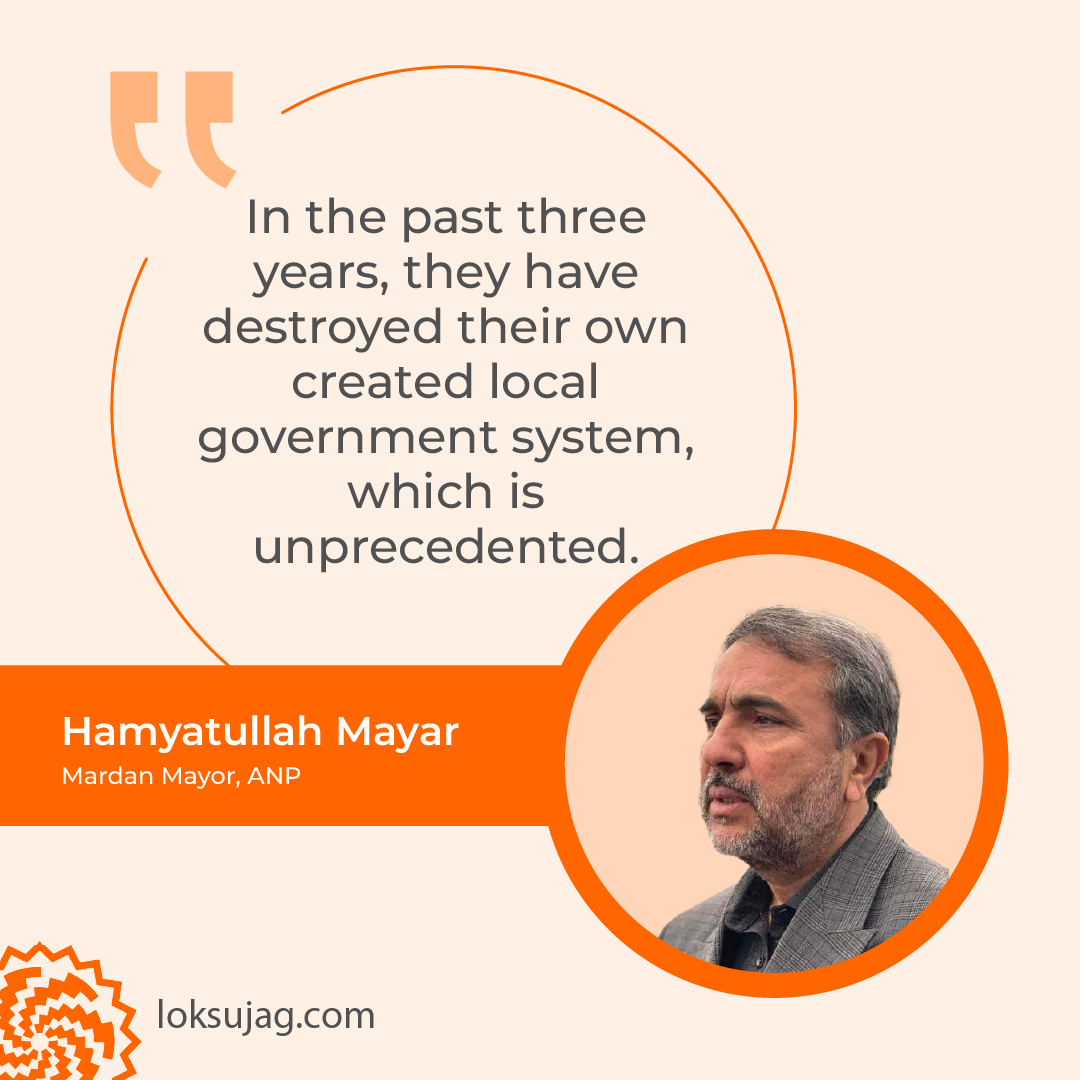
“PTI destroyed the system it had created”
Mardan Mayor Hamyatullah Mayar, who was elected on the Awami National Party ticket, has told Lok Sujag that since 2022, the provincial government has not released a single penny to local government institutions under the PFC Award.
He says that through amendments to the law, the powers of tehsil chairmen and mayors have been trampled upon. “In the past three years, they have destroyed their own created local government system, which is unprecedented.”
He mentions that under the 2019 law, nine departments were transferred to the tehsil councils, but not a single office of any of these departments has been established at the tehsil level.
“We met with the chief minister, ministers, and provincial secretaries many times to save the local government system and the government acknowledged our demands as legitimate. We protested, wrote an open letter to Imran Khan, and even approached the courts, but to no avail.”
Mr Mayar says that they will continue the protest until the restoration of the Local Government Act 2019 rules and the release of funds. They demand that the dues under the PFC Award from 2022 (four years) be released.
“We want the share of local governments in the award to be increased from 20pc to 30pc. Since three years have been wasted, the term of the current local governments should also be extended by three years.”

The provincial govt’s insecurities about vote bank
Ayaanuddin Khan, the chairman of tehsil Wari who won on a PTI ticket, says that the representatives of the ruling party face the same difficulties that opposition mayors and chairmen complain about.
“It has been three years, and we have done no work. The provincial government had given the chairmen belonging to the PTI funds to the tune of Rs100m each but these were also taken back after the opposition members approached the courts.”
The provincial government officials do not publicly comment on this issue, but off the record, they admit that the biggest opposition to provision of funds and powers to local government representatives comes from the party’s own members.
A government official, speaking on condition of anonymity, told Lok Sujag that the members say that if funds are given to local government representatives and work is done through them, who would vote for the party MPs.
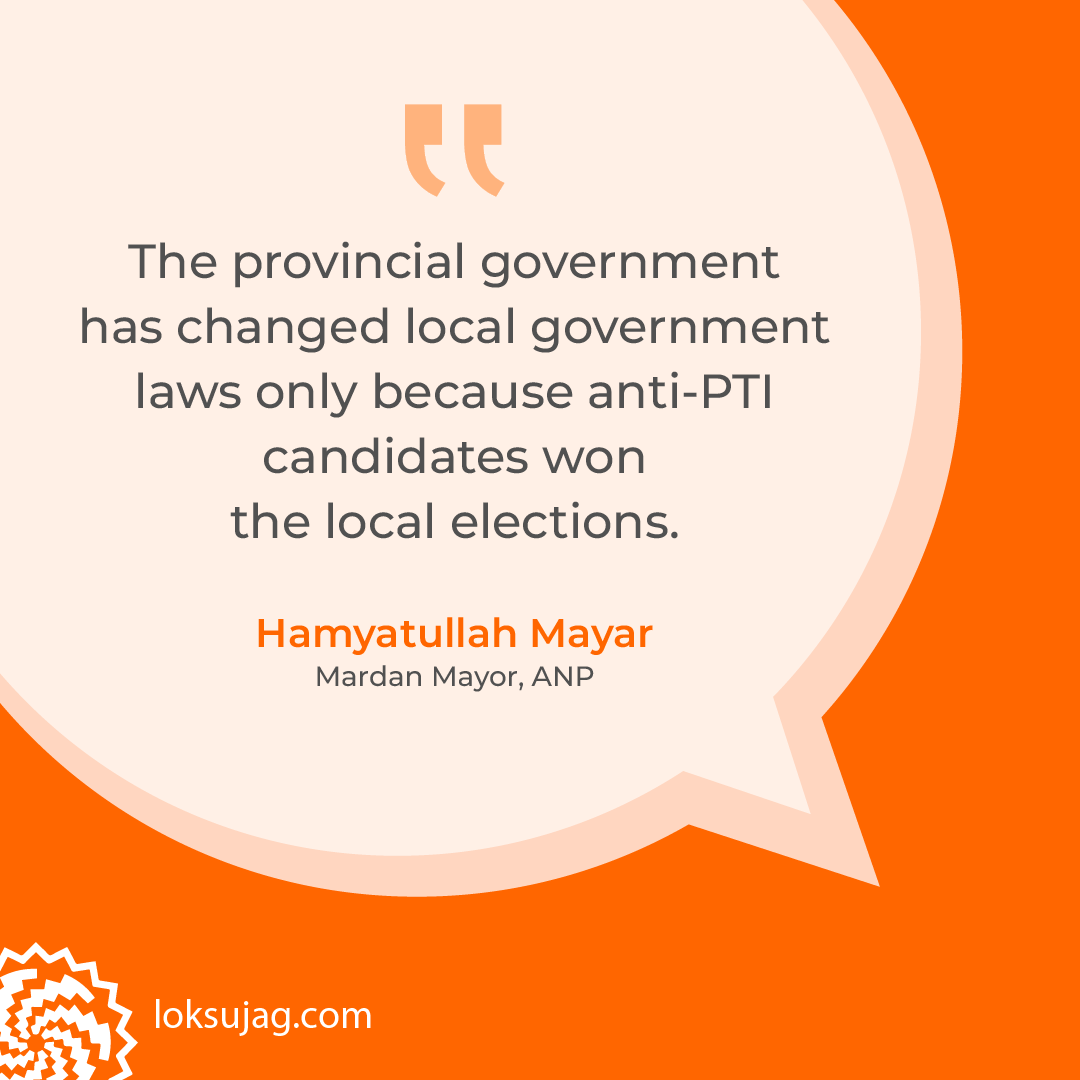
Local Government Minister Arshad Ayub acknowledges that the lack of funds for local government representatives has caused frustration. He says that the financial condition of the province is not good because the federal government is also not paying its outstanding dues to the province.
“We are about to make significant changes to local government laws and rules, which will restore the powers of tehsil chairmen and mayors and make it possible for them to receive development funds.”
Published on 8 Feb 2025
